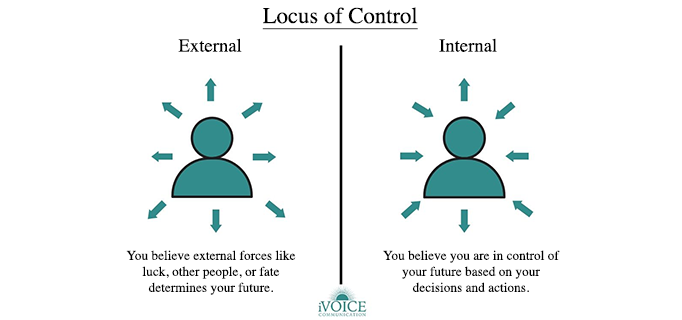Advancing Women Leaders Has Been Slooooooow
There are many success stories to brag about from last year involving women leaders. One is transitioning from Project Manager to Principal. Another became a VP and ‘the boss’ for the first time in her career. A third is becoming the first female CEO of her company. All have earned generous raises which strengthens them, and considering they are all mothers, their career advancement will also strengthen their families, children, and future generations.
But as we examine the growth or advancement of women into leadership positions, it’s been sloooooow going. Over the last 40 years, there’s been great improvement in the gender pay gap, with women’s wages increasing from 64% to 83%. But that higher number has barely budged over the last 20 years.
Plus, the prevalence of burnout and the Great Resignation resulting from the global pandemic has affected mostly women.
Although life has been tough, especially over the past several years, leadership positions await us, as succession plans, in thousands of companies, take root.
What are we to do to serve the cause?
Here are 6 ACTION steps to take to ensure we’re heading in the right direction. Research combined with coaching hundreds last year revealed if you want one of those coveted positions, you can steady and ready yourself by incorporating the following into your daily routine.
A – C – T – I – O – N
- AWARENESS. Become more aware of your mind, body, and stress level. Some stress is expected but too much can be a huge deterrent. As stress increases, access to your prefrontal cortex or rational portion of the brain decreases. Become radically aware that your physical and emotional well-being which are equally important. Be aware of what you can control, including ‘the busy brain’ and try to incorporate periods of rest. Short moments throughout the day will help you get present and stay grounded. Breathing exercises have the ability to lower stress.
Skill: Know that you are the leader of yourself or the CEO of you. Develop an honest, healthy relationship with yourself.
- COURAGE. Replace the word confidence with courage. Courage comes before confidence and it leads to increased confidence when you courageously take action. Women notoriously struggle with confidence more than men but that’s just because they’ve had fewer role models, mentors, and experiences. To gain experience, tap into your courage and, as Brené Brown suggests, “choose courage over comfort and try new things”. Great leaders know it takes both courage and failure to succeed.
Skill: Embrace failure. Learn quickly and don’t make the same mistakes.
- TIME. Time is our most precious commodity so be organized and well-aware of what steals time. Common culprits for women include overthinking, second guessing or worrying, especially before a presentation or providing feedback to someone. According to Dr. Judson Brewer of Brown University and Mindsciences, procrastination is not a time problem, it’s an emotional problem. The urge to procrastinate is triggered by emotional uncertainty. So, if you’re navigating uncharted territory, be kind to yourself and be as proactive and prepared as you can be. Learn to trust yourself.
Skill: Avoid procrastination and perfection which can steal time and zap your progress.
- IDENTITY. Unlike years past, you are not expected to have every answer because we’re working in a knowledge economy. Learn to ask for what you want and need to succeed. A 21st century leader knows how a company makes and loses money so plan to contribute ideas, provide feedback and collaborate towards common goals. Today, we do not have to return emails in a split second or work twice as hard as male counterparts. Those are the things that lead to burnout. Instead, focus on your ability to communicate, evolve, and adapt in this ever-changing business environment.
Skill: Update and strengthen your identity.
- OFF your desk. If there are too many tasks ‘on your desk’, speak about it honestly and learn to delegate. Your boss and company won’t know you’re overloaded if you don’t tell them. Plus, the ability to delegate is one of the most vital skills a leader can acquire. It starts with a process (must they do things exactly your way or can they work autonomously?). Then, measure the progress of the tasks, well before the due date. You may think it’s easier not to delegate to get the exact results you want. But this keeps you from other opportunities that can position you as a leader.
Skill: Learn to have honest conversations and to delegate so you can think and behave like a leader.
- NEW business world. Business is very different than it was just a few years ago. Even most conservative companies operate, dress, and behave more casually, encouraging their people to be authentic and genuine. The opportunity to work remotely and run meetings virtually is here to stay. Much more attention is being placed on emotional well-being, and psychological safety and communicating with a more balanced amount of top-down and bottom-up leadership skills. If you feel overwhelmed with all the changes, know that people of different genders, ages, ethnicities, etc… feel the same way!
Skill: Know that you cannot change or regulate anyone but yourself. Be self-aware and self-regulated so you can develop yourself to become a 21st century leader.
At iVoice Communication we strengthen current and emerging leaders with 21st century communication skills. If you ‘move the needle’ 5–10 % in these areas, you will experience faster growth as you develop the skills necessary to lead and communicate in business today.
Our work is ‘time released’ at iVoice Communication. We know incremental change leads to lasting change and attending our Strengthen Leadership Communication Program for Women will get you there faster.








